Dr. CNR RAO
Dr. CNR RAO - Head of the Scientific Advisory Council to the Prime Minister of India
“Inspired a generation of young minds by showing what is possible under difficult circumstances with little external support”
- Subbu
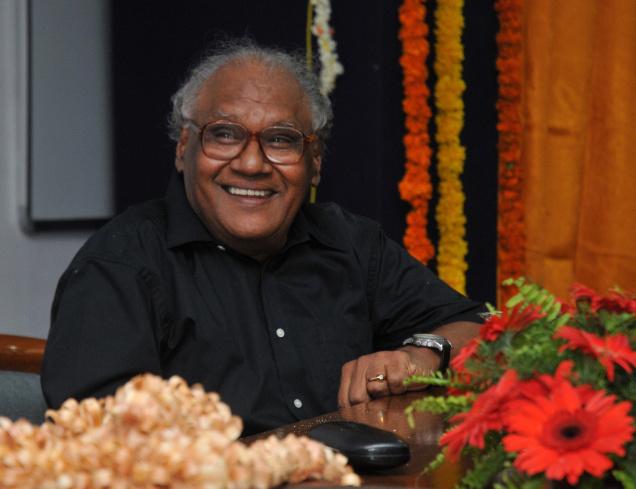 Chintamani Nagesa Ramachandra Rao FRS, also known as C.N.R. Rao, is the Head of the Scientific Advisory Council to the Prime Minister of India. Recently the Government of India conferred him Bharat Ratna, the highest civilian award in India, making him the third scientist after C.V.Raman and A P J Abdul Kalam to get the award.
Chintamani Nagesa Ramachandra Rao FRS, also known as C.N.R. Rao, is the Head of the Scientific Advisory Council to the Prime Minister of India. Recently the Government of India conferred him Bharat Ratna, the highest civilian award in India, making him the third scientist after C.V.Raman and A P J Abdul Kalam to get the award.
C.N.R. Rao was born on 1934 in Bangalore in a Kannada family to Hanumantha Nagesa Rao and Nagamma Nagesa Rao. He was an only child, and his learned parents made an academic environment. He did not attend elementary school but was home-tutored by his mother, who was particularly skilled in arithmetic and Hindu literature. He entered Middle School in 1940, at age six. Although he was the youngest in his class, he used to tutor his classmates in mathematics and English.
He studied BSc at Central College, Bangalore. He obtained his bachelor's degree from Mysore University in 1951, in first class, and only at the age of seventeen. He obtained a master's in chemistry from Banaras Hindu University. In 1953 he was granted a scholarship for PhD in IIT Kharagpur. But four foreign universities, MIT, Penn State, Columbia and Purdue also offered him financial support. He chose Purdue. His first research paper was published in the Agra University Journal of Research in 1954. He completed PhD in 1958, only after two years and nine months, at the age 24.
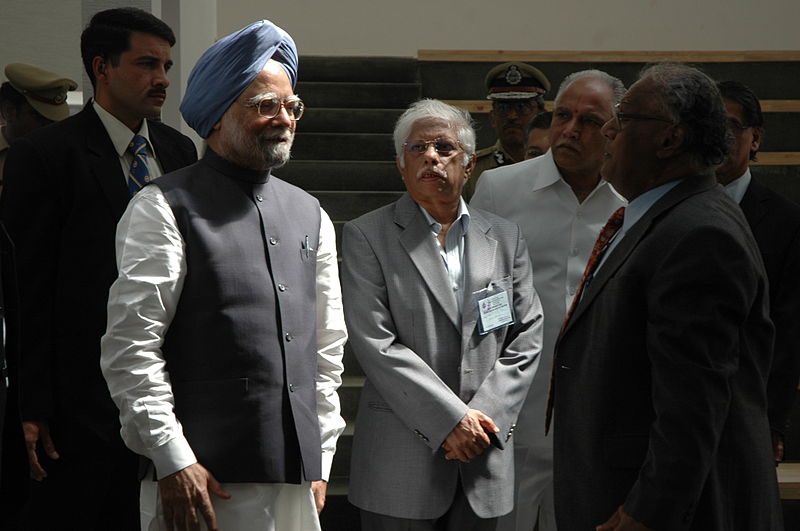 Rao returned to Bangalore in 1959 to join Indian Institute of Science (IISc) as a lecturer. He started his own research with six PhD students. After three years he got permanent appointment in the Department of Chemistry at the Indian Institute of Technology Kanpur.
Rao returned to Bangalore in 1959 to join Indian Institute of Science (IISc) as a lecturer. He started his own research with six PhD students. After three years he got permanent appointment in the Department of Chemistry at the Indian Institute of Technology Kanpur.
In 1976 he returned to IISc to set up a solid state and structural chemistry unit. He became Director of the IISc from 1984 to 1994. He has also been a visiting professor at Purdue University, the University of Oxford, the University of Cambridge and University of California, Santa Barbara. He was the Jawaharlal Nehru Professor at the University of Cambridge and Professorial Fellow at the King's College, Cambridge during 1983-1984.
He had taken IISc to new heights by procuring substantial funding and using it to expand its activities. He had founded the Jawaharlal Nehru Institute for Advanced Research a few years before, and it was showing promise as a special centre for advanced and interdisciplinary research. It was a good way to sign off a career, but Rao did not rest.
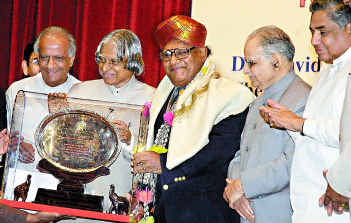 At another level, Rao had been constantly pushing the government for more investment into science. As one of India's great institution builders, he has played a big role in the creation of the Indian Institute of Science Education and Research ( IISER), a series of high-profile institutions now being developed on a par with the IITs. As the director of IISc, he was known for his ability to spot young talent quickly.
At another level, Rao had been constantly pushing the government for more investment into science. As one of India's great institution builders, he has played a big role in the creation of the Indian Institute of Science Education and Research ( IISER), a series of high-profile institutions now being developed on a par with the IITs. As the director of IISc, he was known for his ability to spot young talent quickly.
Rao is currently the National Research Professor, Linus Pauling Research Professor and Honorary President of Jawaharlal Nehru Centre for Advanced Scientific Research, Bangalore which he founded in 1989. He was appointed Chair of the Scientific Advisory Council to the Indian Prime Minister in January 2005, a position which he had occupied earlier during 1985–89. He is also the director of the International Centre for Materials Science (ICMS).
Rao is one of the world's foremost solid state and materials chemists. He has contributed to the development of the field over five decades. His work on transition metal oxides has led to basic understanding of novel phenomena and the relationship between materials properties and the structural chemistry of these materials. He is the author of around 1500 research papers. He has authored and edited 45 books. Rao serves on the board of the Science Initiative Group.
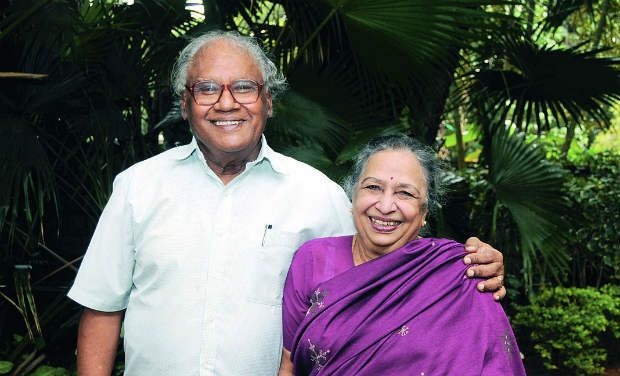 Those who know him closely would compare him with Sunil Gavaskar. When Gavaskar started playing, India did not have cricketing heroes respected globally. When he finished, a young generation of cricketers were ready to take the team to the next level. CNR Rao did to Indian science what Gavaskar did to Indian cricket: inspire a generation of young minds by showing what is possible under difficult circumstances with little external support.
Those who know him closely would compare him with Sunil Gavaskar. When Gavaskar started playing, India did not have cricketing heroes respected globally. When he finished, a young generation of cricketers were ready to take the team to the next level. CNR Rao did to Indian science what Gavaskar did to Indian cricket: inspire a generation of young minds by showing what is possible under difficult circumstances with little external support.
He is a member of many of the world's scientific associations, including the U.S. National Academy of Sciences, American Academy of Arts and Sciences, the Royal Society (London; FRS, 1982), French Academy, Japanese Academy, Serbian Academy of Sciences and Arts and the Pontifical Academy.
Rao has honorary doctorates from 60 universities from around the world. He has authored around 1,500 research papers and 45 scientific books. He is the recipient of most of the major scientific awards, and is member of all major scientific organisations.
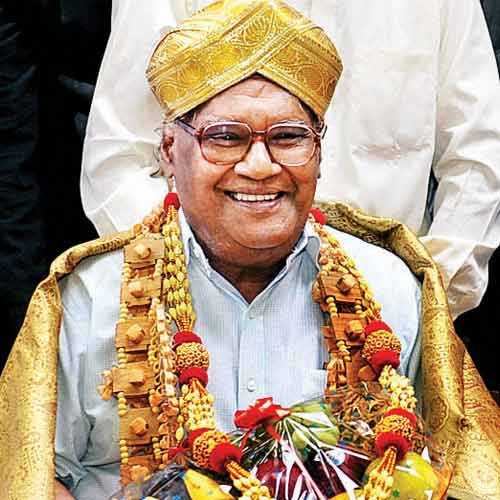 Professor Rao has been awarded the Padma Shri (1974) and Padma Vibhushan (1985) by the Government of India, as well as the Karnataka Ratna by the Karnataka State Government. On November 16, 2013 Government of India declared that it would confer the Bharat Ratna on Prof. Rao. He became the first recipient of the India Science Award, instituted by the Government of India, for his contributions to solid state chemistry and materials science, awarded in 2004. In 2005, he was conferred the title Chevalier de la Légion d'honneur (Knight of the Legion of Honour) by France, awarded by the French Government. He is a foreign fellow of Bangladesh Academy of Sciences. He was also awarded an honorary Doctor of Science by the University of Calcutta in 2004.
Professor Rao has been awarded the Padma Shri (1974) and Padma Vibhushan (1985) by the Government of India, as well as the Karnataka Ratna by the Karnataka State Government. On November 16, 2013 Government of India declared that it would confer the Bharat Ratna on Prof. Rao. He became the first recipient of the India Science Award, instituted by the Government of India, for his contributions to solid state chemistry and materials science, awarded in 2004. In 2005, he was conferred the title Chevalier de la Légion d'honneur (Knight of the Legion of Honour) by France, awarded by the French Government. He is a foreign fellow of Bangladesh Academy of Sciences. He was also awarded an honorary Doctor of Science by the University of Calcutta in 2004.
Dr. Rao has also been conferred with China's top science award for his important contributions in boosting Sino-India scientific cooperation. The award was given by Chinese Academy of Sciences (CAS) in January 2013, which is China's top academic and research institution for natural sciences. He received 'Distinguished academician award' from IIT Patna in 2013.
Dr.Rao is married to Indumati Rao in 1960. They have two Childern Sanjay & Suchitra. His son Sanjay Rao is engaged in popularizing science in Bangalore's schools. His daughter Suchitra is married to K.M. Ganesh, the director of the Indian Institute of Science Education and Research (IISER) at Pune, Maharashtra.
*************




